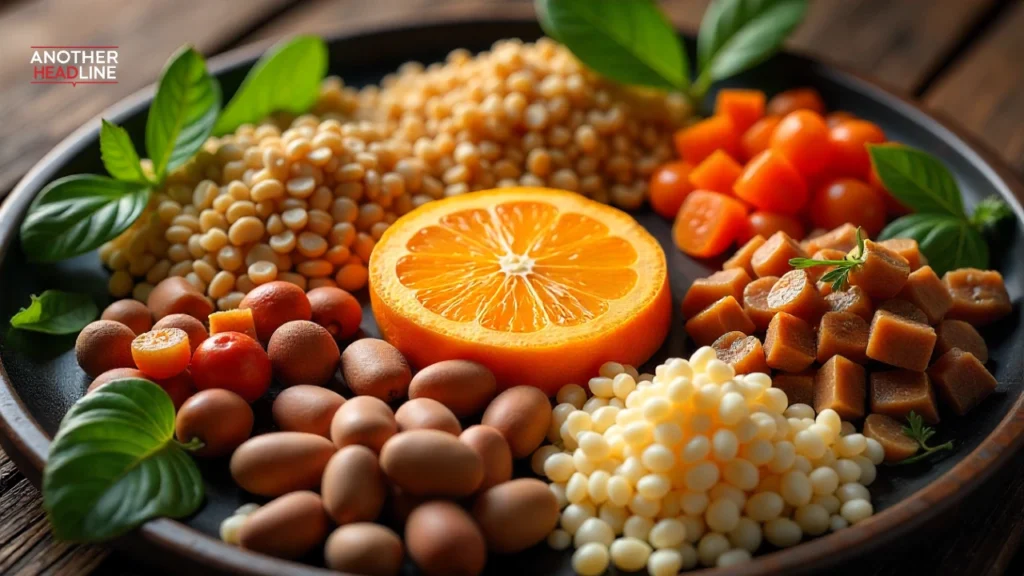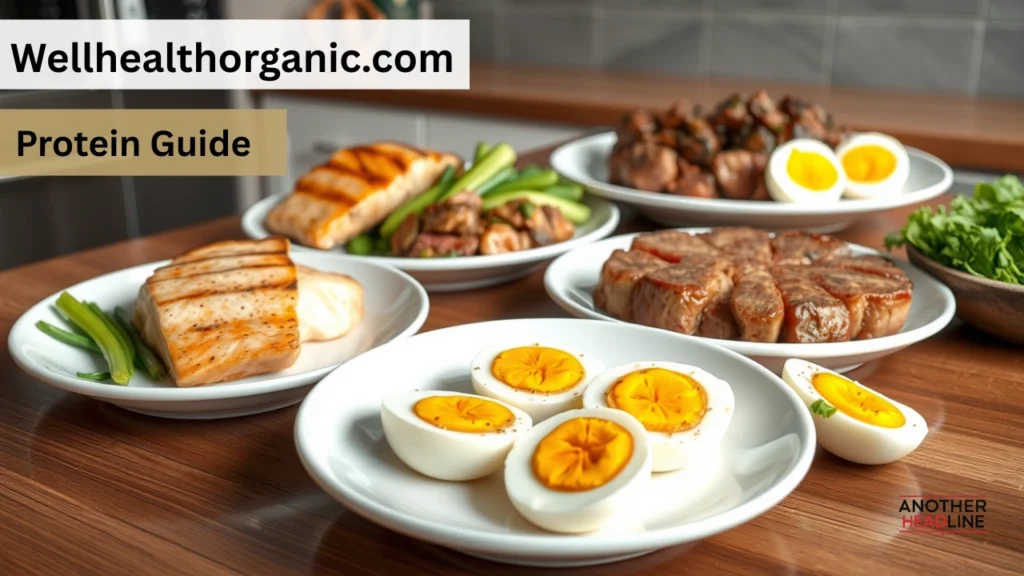Protein is essential for overall health, yet many people struggle to understand which sources are best for their needs. Wellhealthorganic.com Protein guide offers a comprehensive look at how to choose the right protein—whether you follow a plant-based diet, eat meat occasionally, or want to maintain a balanced lifestyle.
Wellhealthorganic.com Protein Guide: Not Just for Fitness Enthusiasts

Protein is often associated with muscle building, but its role goes far beyond the gym. It helps:
- Repair cells and tissues
- Support hormone regulation
- Boost immunity
- Transport oxygen throughout the body
Unlike fats and carbohydrates, protein isn’t stored in the body, which means you need a steady daily intake.
Understanding Amino Acids and Complete Proteins
Proteins are made of amino acids—the building blocks of the body. There are 20 amino acids, with 9 classified as essential because your body cannot produce them.
Also Read
- Complete proteins: Contain all essential amino acids (e.g., eggs, meat, quinoa)
- Combining plant proteins: Beans + rice, or lentils + grains, can create a complete protein
Wellhealthorganic.com Protein emphasizes smart pairing to ensure nutritional balance, particularly for plant-based eaters.
Plant-Based Powerhouses

Plant proteins can be just as effective as animal proteins when combined thoughtfully. Key sources include:
- Legumes: Chickpeas (19g protein/100g), lentils (18g/100g) – great in soups, stews, and salads
- Nuts & Seeds: Hemp seeds (31g/100g), almonds (21g/100g) – perfect for snacks or adding crunch to meals
- Grains: Quinoa, amaranth, and buckwheat – nutritious and protein-rich
- Soy: Tofu, tempeh, edamame – versatile and protein-packed
These sources make it easy to maintain a plant-based diet without missing out on essential nutrients.
Animal-Based Proteins
If you consume animal products, these options offer high-quality protein along with essential vitamins and minerals:
- Poultry: Chicken breast (31g/100g) – lean and versatile
- Red Meat: Beef and lamb – rich in iron and B12; moderation is key
- Seafood: Salmon, tuna, sardines – protein + Omega-3 for heart and brain health
- Eggs: 6g protein per egg – versatile and nutrient-dense
- Dairy: Greek yogurt, milk, cheese – supports bone health and protein needs
Modern Protein Options
The protein landscape now includes blended and innovative options to fit busy lifestyles:
- Plant-based powders: Pea, brown rice, hemp – ideal for post-workout
- Seitan: 25g protein/100g – dense, chewy, meat alternative
- Egg white protein: Low fat, highly bioavailable
- Jackfruit combinations: Low-protein alone, but excellent when paired with legumes or grains
Why Balanced Protein Choices Matter
A well-rounded protein approach supports:
- Weight management – keeps you fuller longer
- Muscle repair and growth
- Improved metabolism
- Cardiovascular health – especially from nuts and legumes
- Sustainable eating – plant-based proteins reduce environmental impact
Wellhealthorganic.com Protein promotes flexibility, balance, and conscious eating without forcing a single diet ideology.
Practical Tips to Increase Protein Intake
- Start small: Add chia seeds to smoothies, switch rice for quinoa
- Mix it up: Combine lentils in soups, tempeh in stir-fries
- Snack smart: Greek yogurt, nuts, boiled eggs, roasted chickpeas
- Supplement wisely: Use clean, plant-based protein powders when needed
FAQs
Q1. Can I mix plant and animal proteins in my diet?
Yes! Combining plant and animal proteins can provide a complete amino acid profile and help meet your daily protein needs effectively.
Q2. How much protein should I consume daily?
The general recommendation is 0.8 grams per kilogram of body weight. Athletes or highly active individuals may need 1.2–2 grams per kilogram.
Q3. Which vegetarian foods are highest in protein?
Hemp seeds (31g/100g), almonds (21g/100g), lentils (18g/100g), and chickpeas (19g/100g) are excellent high-protein vegetarian options.
Q4. Are plant-based protein powders effective?
Yes! Pea, brown rice, and hemp protein powders are convenient, low-fat, and provide high-quality protein, especially useful post-workout or for busy schedules.
Q5. Can eating too much protein be harmful?
Excessive protein intake can strain the kidneys and digestive system. It’s best to balance protein with other nutrients and follow recommended daily amounts.
Final Thoughts
Wellhealthorganic.com Protein is a comprehensive and practical guide for anyone looking to make smarter protein choices. Whether you’re a vegetarian, vegan, or omnivore, it breaks down complex nutritional concepts into easy-to-follow advice, helping you balance plant and animal proteins, understand amino acids, and make informed dietary decisions. With its focus on health, sustainability, and flexibility, this guide empowers readers to optimize their protein intake while supporting a cleaner, greener lifestyle. It’s not just about protein—it’s about smarter, healthier living.





